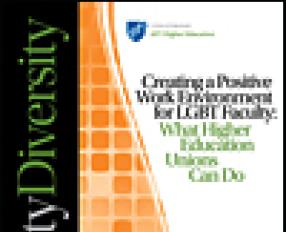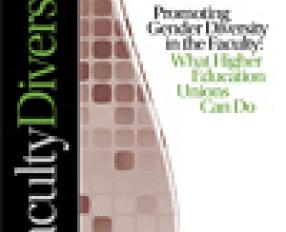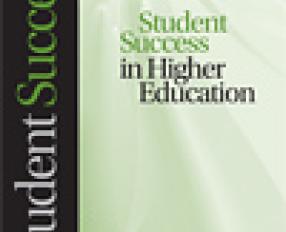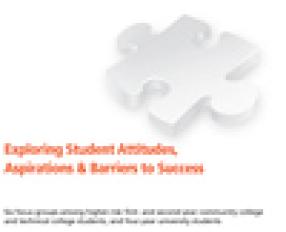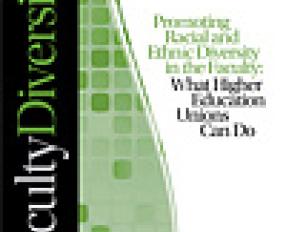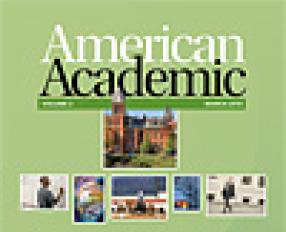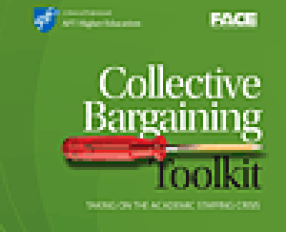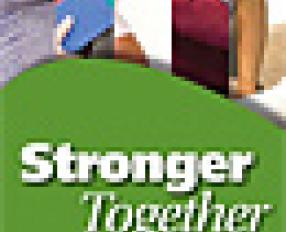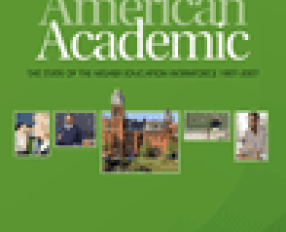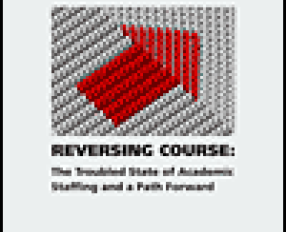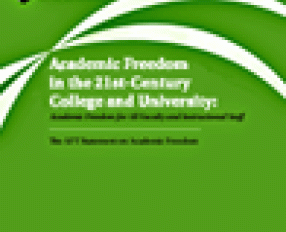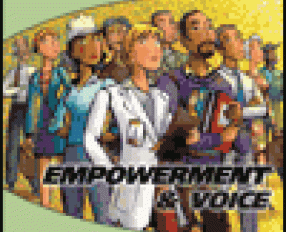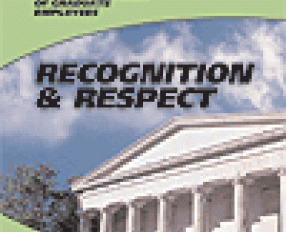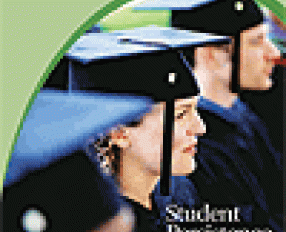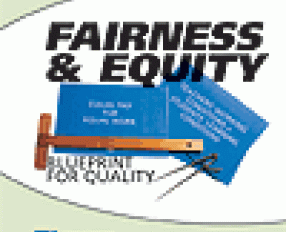Resources
Higher Education
Resources
A selection of video conversations with our higher ed staff, affiliates and partners.
Right now over $1 trillion in educational debt is being carried by over 37 million Americans. The promise of higher education, which has historically been a vehicle for social mobility, and, in these times, is considered necessary for a decent job, is becoming out of reach. The problem of massive education debt cannot be solved without confronting the other challenges that beset our system of higher education. At the forefront of these problems, as detailed in this report, is the massive and ongoing disinvestment from public higher education.
This third report in our series on diversity in higher education discusses the challenges faced by the LGBT community in our institutions of higher education and how these challenges stem from the broader issue of a lack of federal protection for LGBT civil rights. The report highlights the perceptions of LGBT faculty, staff and students about the campus climates in which they live and presents practical advice to higher education unions about how to make their institutions more inclusive and welcoming for the LGBT community. (April 2013)
The second in a series on diversifying the higher education faculty, this report analyzes the specific challenges faced by women in academy. The report details the barriers women face in educational pathways, hiring and retention, and offers local affiliates practical advice on how higher education unions can help lead their institutions in making gender diversity a priority. (May 2011)
To get started, check out the AFT's college guide and checklist, Just Ask! Which College Is Right for You? The guide and checklist will help you evaluate each school you are considering, providing you with a wide range of questions to choose from based on your specific situation and priorities. (April 2011)
To ensure that ideas about improving student success work as well in the classroom as they may appear on paper, this report encourages higher education institutions to bring the voices of front-line educators into student success policymaking. The report articulates a number of key elements of college student success, recommends ways to create effective programs, and outlines the roles and responsibilities of all stakeholders in creating the necessary conditions for students to succeed. (March 2011)
AFT commissioned Lake Research Partners to conduct a series of focus groups with students, particularly first- and second-year students who met certain demographic criteria that might make them less likely to persist than the “traditional” student. As you will read, even though students have varying experiences, they face two overarching challenges in trying to succeed at a college or university—overcoming the high cost of tuition and fees, and finding enough help to identify a clear and sensible path through their higher education. (March 2011)
Recognizing that efforts to diversify higher education have been insufficient, the AFT has released a two-part report that examines barriers in educational pathways, hiring and retention practices for faculty and students from underrepresented groups, and then offers actions that faculty and their unions can take to promote diversity in higher education. (March 2010)
A national survey of part-time/adjunct faculty that examines who part-time/adjunct faculty are, under what conditions they do their work and how they view that work and the challenges they face on campus. The survey demonstrates that part-time/adjunct faculty are a diverse group. While they are committed to their teaching and eager to serve students, most express concerns about working conditions. (March 2010)
Looking to put academic staffing issues front and center at the bargaining table? From assessing your local's structure to saying thank you, the toolkit covers all of the basics for designing a powerful campaign that can help your members achieve a more equitable academic staffing structure through negotiations, lay the groundwork for taking FACE beyond the bargaining table, and in the process, strengthen your union. (October 2009)
Stronger Together is a new program to help faculty and staff work together to build the union’s power and solidarity to ensure that the academic workforce is built on stable, secure jobs and the concept of equal pay for equal work. This brochure sets forth the basic principles that have been developed over the past year in dialogue with union leaders and rank-and-file members around the country. AFT is working with locals around the country to develop Stronger Together programs at the local level. (July 2009)
Just Ask! is part of AFT’s Faculty and College Excellence (FACE) campaign to address the academic staffing crisis in higher education. The Just Ask! program targets parents and students who are in the process of choosing a college or university. As part of their decision-making process we recommend asking four questions about who is teaching undergraduate classes at an institution and how well those faculty members are treated. You can download the brochure or visit the Just Ask! page on the FACE Web site for more information. (March 2009)
Using the most recent ten years of federal data, American Academic examines the state of the higher education workforce in the United States. This report, which will be an annual report produced by AFT Higher Education, documents the troubling trend of relying more and more on contingent faculty in higher education who are underpaid and undersupported. (February 2009)
This report documents, for the first time, higher education's continuing reliance on underpaid contingent faculty at the level of numbers of courses and students taught and includes an interactive Excel model that allows unions, institutions and states to calculate what it would cost to reverse the trend. (October 2008)
Download the model to this resource.
A response to ongoing political attacks on higher education faculty and staff as well as the increasing reliance on contingent faculty who have little or no academic freedom protections. (September 2007)
AFT's quality standards for the employment of professional staff. The report provides guidelines for improving the economic and professional working conditions of professional staff. (January 2006)
AFT’s quality standards for the employment of full-time nontenure-track faculty. The report provides guidelines for improving the economic and professional working conditions of full-time nontenure-track faculty. (October 2005)
AFT’s quality standards for the employment of graduate employees. The report provides guidelines for improving the economic and professional working conditions of graduate employees. (June 2004)
This report sorts fact from fiction about student persistence in college. It debunks myths and puts forward ideas that policymakers, particularly federal policymakers, can use to make a constructive contribution to student success in college. (August 2003)
AFT’s quality standards for the employment of part-time/adjunct faculty in colleges and universities. The report outlines a coordinated program to improve the financial and professional circumstances of part-time/adjunct faculty. (2002)
 Member Benefits
Member Benefits Find Your Local
Find Your Local How to Join
How to Join En Espanol
En Espanol


